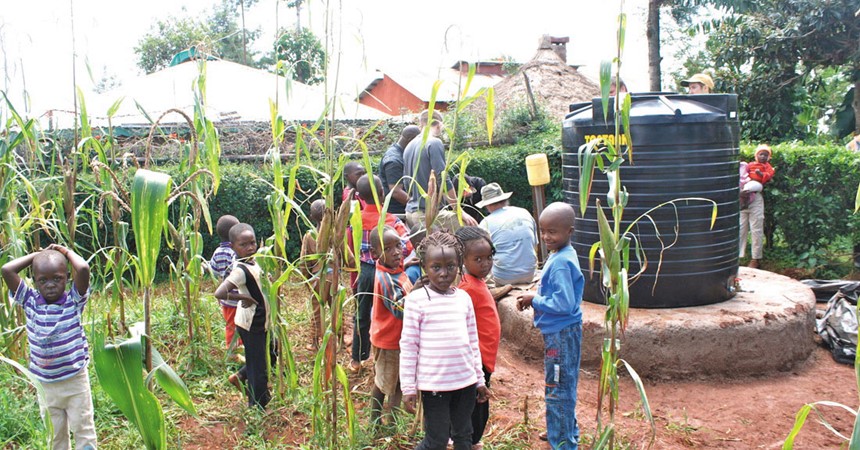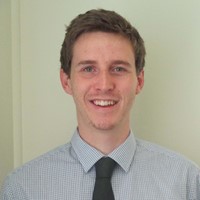Following my graduation from St Francis Xavier’s College in 2010, I travelled to the United States of America to complete my undergraduate degree in Political Science at St Olaf College in Minnesota. In the summer of 2014, two of my college roommates, Daniel Lilly and Nicholas Hopkins, spent a summer in Kenya working on an irrigation project sponsored by the Bill and Melinda Gates Foundation. While there, they recognised many of the huge problems rural farmers in developing countries face, especially being off the power grid, and were determined to use solar technology to help. They returned to the United States fuelled by the belief that they had the ability to improve the lives of thousands of people around the world. Given my interests in international development and international relations, my colleagues asked me to join them in their project, and along with Daniel’s father Brian, an engineering professor at the University of Illinois, we founded Project SPLASH. Daniel and I spent a week in Washington DC, during which time we met with several members of the United States Agency for International Development (USAID) to listen to their advice and expertise on international not-for-profits. Despite spending the second half of 2015 as a Language Assistant in El Puerto de Santa María, I have been working on the Board of Directors of Project SPLASH for the past six months, and we are hoping to launch our foundation in a big way in 2016.
One of the primary goals of Project SPLASH is to bring solar irrigation technology to low-income communities that need our help. 65% of Sub-Saharan Africans are subsistence farmers who depend on seasonal rains and often laborious irrigation methods to provide for themselves and their families. The particularly strenuous labour associated with farming often falls on the women and children, whom my colleagues witnessed manually irrigating by drawing buckets from shallow wells − for up to six hours a day. We recognised that if we could find a way to make a low-cost, easy to operate, portable irrigation system, there would be enormous demand. Such a system could reduce the backbreaking labour these often sick women were putting their bodies through, while also increasing income. This would allow them to pay for medicine as well as school fees for their children, as there is no free education in Kenya.
My colleagues developed what became known as the ‘MajiPump’ - a small-scale solar-powered irrigation system that fits in a backpack. They travelled back to Kenya late last year to test our pumps in communities around Nairobi, and the feedback was overwhelmingly positive. Our system eliminates labour, while providing far more water per day than can be achieved manually. The system is already transforming lives. Farmers love how simple it is to operate, and the cost is much lower than any comparable motorised system. It is also completely green, as it is solar-powered and needs no battery. We want to continue to bring these systems to people in the most need, as it gives low-income families the chance to improve their lives. These pumps have potential application throughout Sub-Saharan Africa and South America, as well as Asia. We have been co-ordinating with Malawi’s Department of Irrigation in recent months and it’s expressed interest in our program.
As we look for new ways to use technology and innovation to help meet basic human needs, while promoting sustainability and internal development, we are also implementing the ‘Young Engineer Initiative’. By giving young people first-hand exposure to engineering skills such as drawing, drafting and modelling, we hope to ignite an interest that will produce the next generation of innovators. We aim to provide formal lessons in engineering drawing, both on paper and using AutoCAD on the computer. In schools with no access to computers, we will provide solar-powered laptops to help students take advantage of the opportunities provided by technological literacy and ability. The ultimate goal is to get the students involved in our solar technology projects upon completion of the coursework in order to give them a chance to apply the engineering skills they learn. The lesson plans for this initiative are currently being developed in a collaborative effort with the University of Illinois, and we look forward to implementing the program in classrooms starting in the northern summer of 2016.
My colleagues and I are travelling to Africa in June to spread our irrigation pumps and to implement our Engineering Program, and in the meantime are attempting to raise funds so that we can bring our system to as many people as possible, as well as take as many children as we can into the engineering program.
If you are interested in learning more or wish to contribute, please visit www.projectsplash.org. We appreciate each donation we receive, and will be transparent in allocating donated funds. One way we do this is by allowing you to decide which of our projects you would like to support with your donation. We truly believe that we have the technology to improve the quality of life for thousands of communities around the world, and would love you to get on board with our project.




























































































